Conference Speakers
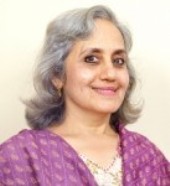
Rajni Bakshi
RAJNI BAKSHI has spent the last 25 years in the fertile ground between journalism and activism - chronicling struggles for more humane and ecologically sound ways of life. She is a trustee of Child Rights and You (CRY) and Citizens for Peace in Mumbai. She is also a long term associate of Centre of Education and Documentation (Mumbai & Bangalore); Timbaktu Collective (Andhra Pradesh) and Jansahayog Trust (Mumbai).
Ms. Bakshi has a B. A. from George Washington University (Washington, DC) and an M. A. from the University of Rajasthan (Jaipur).
Her books include The Dispute over Swami Vivekananda’s Legacy (1993); Bapu Kuti: Journeys in Rediscovery of Gandhi (1998); and An Economics for Well-Being (2007).
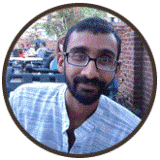
Amit Basole
AMIT BASOLE holds a PhD in Neuroscience from Duke University (Durham, NC) and is currently Researching Political Economy at the University of Massachusetts, Amherst.
His interests include Eurocentrism, Knowledge Politics, Philosophy of Science, Gandhian Economics, and Critiques of Industrial Modernity.
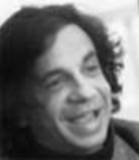
Akeel Bilgrami
AKEEL BILGRAMI is the Johnsonian Chair of Philosophy at Columbia University, a founding member of Columbia's Committee on Global Thought, and the Director of the Heyman Centre for the Humanities.
His books include: Belief and Meaning, (1992, Blackwell); Self-Knowledge and Resentment (2006, Harvard University Press); What is a Muslim? (forthcoming 2009, Princeton University Press) and P oliticsand the Moral Psychology of Identity (forthcoming 2009, Harvard University Press). He has held visiting positions at Oxford University, Yale University, Australian National University, and Jawaharlal Nehru University; and has held the Rajeev Gandhi Fellowship and theRadhakrishnan Chair in India.
He is a recipient of numerous honors and awards, including from the NEH, the Mellon Foundation, and the Ford Foundation. Akeel Bilgrami was a Rhodes Scholar at Balliol College, Oxford University where he studied Philosophy, Politics, and Economics. He then taught at the Indian Institute of Technology, Bombay before he went to the University of Chicago for his Ph.D.
In 2009 he will be a fellow in the 'Scholars and Writers' programme at the New Public Library, where he will write a book on Gandhi's thought.
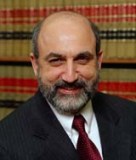
Charles R. Disalvo
CHARLES R. DISALVO is the Woodrow A. Potesta Professor of Law at the West Virginia University College of Law, where he teaches litigation-related courses as well as a seminar on Civil Disobedience and the Law.
He has published widely on topics relating to nonviolence and the law. He is currently completing a biography, Mohandas K. Gandhi, Attorney at Law: From Courthouse to Jailhouse.
Professor DiSalvo holds a B.A. in history from St. John Fisher College, an M.A. in East Asian Studies from Claremont Graduate University and a J.D. from the University of Southern California, where he was a member of the Southern California Law Review.
He has been recognized for his teaching excellence by the Roscoe Pound Foundation, by the West Virginia University Foundation and by his students, who have named him Professor of the Year on five occasions.
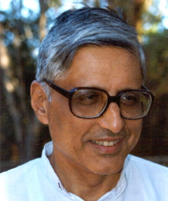
Rajmohan Gandhi
RAJMOHAN GANDHI, the author of a major new biography on his grandfather the Mahatma, is currently Visiting Professor in the Program in South Asian and Middle Eastern Studies, University of Illinois at Urbana-Champaign, and Faculty Director of Global Crossroads, a learning and living community at the University of Illinois.
He is a Jury Member for the Nuremberg International Human Rights Award, and Co-chair, Centre for Dialogue and Reconciliation, Gurgaon, India. A former member of the Rajya Sabha (the upper house of the Indian Parliament), he led the Indian delegation to the UN Human Rights Commission in 1990. He is a commentator in the Indian media, and the author of several books. In 2002 he received the Sahitya Akademi ( India's National Academy of Letters) Award for his Rajaji: A Life, a biography of Chakravarti Rajagoplachari (1878-1972), leading figure in India's freedom movement and Governor General of free India, 1948-50.
In 2004 he received the International Humanitarian Award (Human Rights) from the City of Champaign, and in 1997 he was awarded an honorary doctorate of law from the University of Calgary and an honorary doctorate of philosophy from Obirin University, Tokyo.
His new book, Mohandas: a True Story of a Man, his People and an Empire, has just been published by Viking/Penguin India and by University of California Berkeley Press. For this he received the H.K. Barpujari National Biennial Award from the Indian History Congress for “outstanding historical research in the previous two years”.
Other books by Rajmohan Gandhi include Ghaffar Khan: Nonviolent Badshah of the Pakhtuns (Penguin 2004); Revenge & Reconciliation: Understanding South Asian History (Penguin, 1999); The Good Boatman: A Portrait of Gandhi(Penguin, 1995); Patel: A Life, a biography of Vallabhbhai Patel (1875-1950), Deputy Prime Minister of India, 1947-50 (Navajivan, Ahmedabad, 1990); and Eight Lives: A Study of the Hindu-Muslim Encounter (SUNY, 1987).

Vibha Gupta
VIBHA GUPTA is Chairperson of Magan Sangrahalaya (Wardha), the museum of Rural Industries founded by Mahatma Gandhi. She assisted her father, an eminent Gandhian, the late Dr. Devendra Kumar, in founding the Centre of Science for Villages in 1978 and has been working since then in developing appropriate technologies for rural population in areas such as renewable energy, rural artisans, housing, sanitation, forest , agro-based rural industries, and women-oriented technologies. She also heads the Karigar Panchayat (Artisans Forum), a national movement to preserve, protect and promote the skills, knowledge and culture of Indian Artisan. She has served as a member of several national committees formed by the ministries of Science and Technology, and Rural Development.
She earned her Ph. D. in Economics from Indian Institute of Technology, New Delhi, and holds postgraduate degrees in Social Science from Canada and the Netherlands. She has received a number of national and international awards. She has to her credit five publications and ten films that focus on appropriate rural technologies.
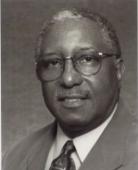
Bernard Lafayette Jr.
BERNARD LAFAYETTE JR. is a Distinguished Scholar-in-Residence and Director of the Center for Nonviolence and Peace Studies at the University of Rhode Island.
As Civil Rights Movement activist, Dr. LaFayette co-founded the Student Nonviolent Coordinating Committee (SNCC) in 1960. He was a leader of the Nashville Movement, 1960 and on the Freedom Rides, 1961 and the 1965 Selma Movement. He directed the Alabama Voter Registration Project in 1962, and he was appointed by Martin Luther King, Jr. the National Program Administrator for the Southern Christian Leadership Conference (SCLC) and National Coordinator of the 1968 Poor Peoples’ campaign.
He is the former president of the American Baptist College of ABT Seminary in Nashville, Tennessee; Scholar in Residence at the Martin Luther King, Jr. Center for Nonviolent Social Change in Atlanta, Georgia; Pastor emeritus of the Progressive Baptist Church in Nashville; and the founder of the Association For Kingian Nonviolence, Education and Training Works.
As an authority on the strategy of nonviolent social change, Dr. LaFayette chairs the International Nonviolence Executive Planning Board and serves as a consultant on peace and nonviolence. His publications include the Curriculum and Training Manual for the Martin Luther King, Jr., Nonviolent Community Leadership Training Program, Pedagogy for Peace and Nonviolence and The Leaders Manual: A Structured Guide and Introduction to Kingian Nonviolence (with David Jehnsen).
More About Nonviolence & Peace Studies

Nipun Mehta
NIPUN MEHTA is the founder of CharityFocus, a fully volunteer driven organization started in 1999 to inspire the young IT professionals to provide free web based solutions for nonprofit organizations worldwide. Having served thousands of nonprofits, without any overhead, CharityFocus has now become an incubator of "gift-economy" projects ranging from web services to a film production company to a print magazine to a restaurant. With a membership base of 200K, they attract millions of global viewers to its websites. Mehta is also a member of the Tipping Point Network and serves on the advisory board of the Seva Foundation and Dalai Lama Foundation
In 2005, Nipun and his wife embarked on an unscripted walking pilgrimage in India that dramatically deepened their understanding of gift-economy values. While Nipun's childhood dream was to either become a tennis-pro or a Himalayan Yogi, the current mission statement of his life simply reads: "Bring smiles in the world and stillness in my heart."
More About CharityFocus

Michael Nagler
MICHAEL NAGLER is Professor emeritus of Classics and Comparative Literature at University of California, Berkeley, where he founded the Peace and Conflict Studies Program and taught nonviolence as well as meditation and other courses. He is a founder and now President of the Board of the Metta Center for Nonviolence Education, and of PeaceWorkers. He is Co-Chair of the Peace and Justice Studies Association.
His book, The Search for a Nonviolent Future won the 2002 American Book Award and is being used in many courses as well as reading groups around the country. He is also the author of America Without Violence (Island Press, 1982), The Upanishads (with Sri Eknath Easwaran, Nilgiri Press, 1987), Our Spiritual Crisis ( Open Court: Carus, 2005), and a pamphlet, Hope or Terror: Gandhi and the Other 9/11 (published by Metta with the Nonviolent Peaceforce).
His was recently honored with the Jamnalal Bajaj International Award for promoting Gandhian Values Outside India (2007). He also received the 2003 Peace and Justice Studies award for “Outstanding Contribution to Peace Studies,” and a “Season for Nonviolence Peacemaker Award” in 2006.
More About Metta Center

James O'Toole
JAMES O'TOOLE is the Daniels Distinguished Professor of Business Ethics at the University of Denver’s Daniels College of Business. Previously, at the University of Southern California’s business school he held the University Associates' Chair of Management, served as Executive Director of the Leadership Institute, and editor of New Management magazine.
O'Toole's research and writings have been in the areas of leadership, philosophy, ethics, and corporate culture. He has addressed dozens of major corporations and professional groups, and has over one hundred published articles. Among his sixteen books, Vanguard Management was named "One of the best business and economics books of 1985" by the editors of Business Week. His latest books are Creating the Good Life: Applying Aristotle’s Wisdom to Find Meaning and Happiness (2005), The New American Workplace (with Edward Lawler, 2006), and Transparency (with Warren Bennis and Daniel Goleman, 2008).
O'Toole received his Doctorate in Social Anthropology from Oxford University, where he was a Rhodes Scholar. He served as a Special Assistant to Secretary of Health, Education and Welfare, Elliot Richardson, as Chairman of the Secretary’s Task Force on Work in America, and as Director of Field Investigations for President Nixon's Commission on Campus Unrest. He won a Mitchell Prize for a paper on economic growth policy, has served on the Board of Editors of the Encyclopaedia Britannica, and was editor of The American Oxonian magazine. From 1994-97 O'Toole was Executive Vice President of the Aspen Institute, and later, Mortimer J. Adler Senior Fellow at the Institute. He also has served as Chair of the Booz/Allen/Hamilton Strategic Leadership Center.
In 2007 he was named one of the “100 most influential people in business ethics” by the editors of Ethisphere, and one of “the top 100 thought leaders on leadership” by Leadership Excellence magazine.
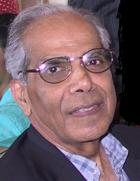
Anthony Parel
ANTHONY PAREL, a political philosopher, is among the world’s leading scholars on Gandhi. For nearly four decades he was professor of Political Science at the University of Calgary, Canada.
Born in Kerala, India, and educated there and the U.S., he received his Ph. D. in Political Science from Harvard University.
His major books include Gandhi's Philosophy and the Quest for Harmony, (Cambridge University Press, 2006); Gandhi, Freedom and Self-Rule, ed., (Lexington Books, 2000); Gandhi: Hind Swaraj and Other Writings," ed., (Cambridge University Press, 1997); The Machiavellian Cosmos, (Yale University Press, 1992); and Comparative Political Philosophy, ed. with R. C. Keith, (2 nd edition, Lexington Books, 2003).
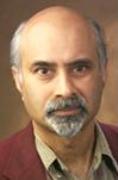
Joseph Prabhu
JOSEPH PRABHU is professor of Philosophy and Religion at California State University, Los Angeles, and a Martin Marty Fellow at the University of Chicago. He has previously been a Senior Fellow at the Center for the Study of World Religions at Harvard. He is the editor of The Intercultural Challenge of Raimon Panikkar (Orbis Books, 1996) and co-editor of the two volume Indian Ethics: Classical Traditions and Contemporary Challenges (Ashgate, 2007). Two books are shortly to appear: “Liberating Gandhi: Community, Empire and a Culture of Peace” (Rowman and Littlefield), and “Hegel, India and the Dark Face of Modernity” (Cambridge University Press). He is the President of the Society for Asian and Comparative Philosophy, 2008-2010.
He is also a peace activist involved in many peace associations, including Interfaith Communities United for Justice and Peace and the Parliament of the World’s Religions. He is a member of the Board of Trustees of the Parliament and the Program Chair for the next meeting, Melbourne, 2009.
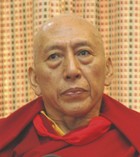
Samdhong Rinpoche
SAMDHONG RINPOCHE is the prime minister (Kalon Tripa) and the chairman of the Tibetan Cabinet-in-Exile.
As scholar, statesman, and a deeply spiritual monk, Venerable Samdhong Rinpoche believes in Mahatma Gandhi’s satyagraha, or non violent freedom struggle, as a necessary means to obtain a resolution to the Tibet issue.
Professor Rinpoche, is a major contributor to the Constitution for a Future Tibet, member of the Board of the Indian Council for Philosophical Research, the Asiatic Society of Calcutta, The Krishnamurti Foundation in India, the World Peace Council, Central Institute for Buddhist Studies, Nav Nalanda Mahavihara, University Grant Commission of India and the president of Association of Indian Universities.
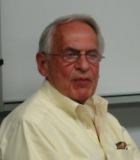
Lloyd Rudolph
LLOYD RUDOLPH is Professor Emeritus of Political Science at the University of Chicago, where he had also served as Chairman of the Committee on International Relations and of the College International Studies and South Asian Studies concentrations.
He has co-authored with Susanne Hoeber Rudolph several books, including The Modernity of Tradition: Political Development in India; Gandhi: The Traditional Roots of Charisma; In Pursuit of Lakshmi: the Political Economy of the Indian State;Postmodern Gandhi and Other Essays: Gandhi in the World and at Home. His most recent publications (with Susanne Rudolph) are the three volume Explaining Indian Democracy: Fifty-Year Perspective. Volume I. The Realm of Ideas: Inquiry and Theory; Volume II. The Realm of Institutions: State Formation and Institutional Change; Volume III. The Realm of the Public Sphere: Identity and Policy and Making US Foreign Policy Toward South Asia.
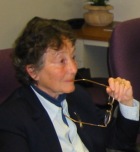
Susanne Rudolph
SUSANNE RUDOLPH is the William Benton Distinguished Service Professor Emerita of Political Science at the University of Chicago, where she served as Director of the Center for International Studies, and of the South Asia Language and Area Center.
She is the past president of the American Political Science Association and the Association of Asian Studies.
She has co-authored with Lloyd Rudolph several books including The Modernity of Tradition: Political Development in India; Gandhi: The Traditional Roots of Charisma; In Pursuit of Lakshmi: the Political Economy of the Indian State;Postmodern Gandhi and Other Essays: Gandhi in the World and at Home. Her most recent publications (with Lloyd Rudolph) are the three volume Explaining Indian Democracy: Fifty-Year Perspective. Volume I. The Realm of Ideas: Inquiry and Theory; Volume II. The Realm of Institutions: State Formation and Institutional Change; Volume III. The Realm of the Public Sphere: Identity and Policy and Making US Foreign Policy Toward South Asia.
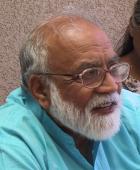
Anil Sadgopal
ANIL SADGOPAL was Professor of Education at Delhi University (1994-2005) and Senior Fellow, Nehru Memorial Museum and Library. He has served as a member of many government commissions or committees such as National Commission on Teachers, National Policy on Education Review Committee, Central Advisory Board of Education, National Steering Committee of National Curriculum Framework-2005, and Common School System Commission, Bihar. He chaired a national report on introducing Gandhian ideas on work-centred curriculum in India’s school system.
For nearly two decades, he led a rural education and development program— Kishore Bharati—in Madhya Pradesh; experimented with Gandhian pedagogy with village children in 1970s. He co-edited ‘Sangharsh aur Nirman’ (in Hindi; 1993) on mine workers’ movement led by the legendary Trade Union leader Late Shankar Guha Niyogi who carried forward the Gandhian philosophy of ‘Struggle and Re-construction’ in a Marxist framework.
His book Shiksha mein Badlav ka Sawal (in Hindi; 2000) deals with critical issues in India’s education policy. He has also publishes dozens of articles/essays on policy analysis and adverse impact of globalization and communal politics on education.
In recognition of his contributions for the application of science and technology to rural areas he received the Jamnalal Bajaj Award in 1980, and Shantiniketan’s Rathindra Puraskar in 1984.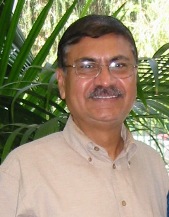
Nirmal Sethia
NIRMAL SETHIA is Professor of Management and Director of Center for Business and Design in the College of Business Administration at California State Polytechnic University, Pomona.
Dr. Sethia has received major grants from the National Science Foundation and the National Endowment the Arts. Currently, under the auspices of Center for Business and Design, he is engaged in creating an international network of professionals committed to Business-Design partnership for a sustainable human future. His research and publications have been in the areas of creativity, innovation and design. He is particularly interested in exploring the relevance of Gandhian philosophy and values, including Ahimsa, to leadership in business and design.
He is currently exploring the significance of Gandhian wisdom in the business context for corporate social responsibility, sustainability and initiatives directed at “the bottom of the pyramid” markets, and in the broader human context for reimagining “the good life.”
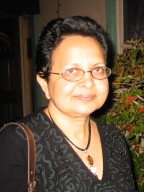
Tara Sethia
TARA SETHIA is Professor of History, founder and Director of Ahimsa Center at California State Polytechnic University , Pomona. Under the auspices of the Center, she has helped establish on campus the degree program for a Minor in Nonviolence Studies.
She teaches “Nonviolence in the Modern World”—the core course for the Minor, courses on India and South Asia and has offered a seminar on Gandhi. She directs summer institutes for K-12 educators on nonviolence and social change, and is faculty advisor to the newly founded Ahimsa Student Club.
Her publications include an edited book ,Ahimsa , Anekanta and Jainism (2004). She has contributed articles on Gandhi and on Nonviolence for the Berkshire Encyclopedia of World History (2005) and is currently working on a book, Gandhi: His World and Ours.
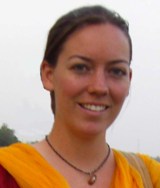
Sandhya Tillotson
SANDHYA TILLOTSON is an Environmental Science major at the Colorado College, in Colorado Springs. During the Spring semester 2008 she traveled to India to volunteer with Gramin Vikas Vigyan Samiti (Gravis), an Indian NGO working for rural development in the deserts of Rajasthan. Using Gandhian approach to rural development, Gravis works with villagers to enable them to help themselves. Sandhya has also volunteered with another Gandhian organization, Navdanya, an experimental farm, founded by Dr. Vandana Shiva in Dehradun, India.
Sandhya is excited to bring what she has learned to people in the United States, especially the young, who are interested in learning about ways to get involved with Gandhian social work in today’s world. She will share her learning experience from her visit to Gravis.
